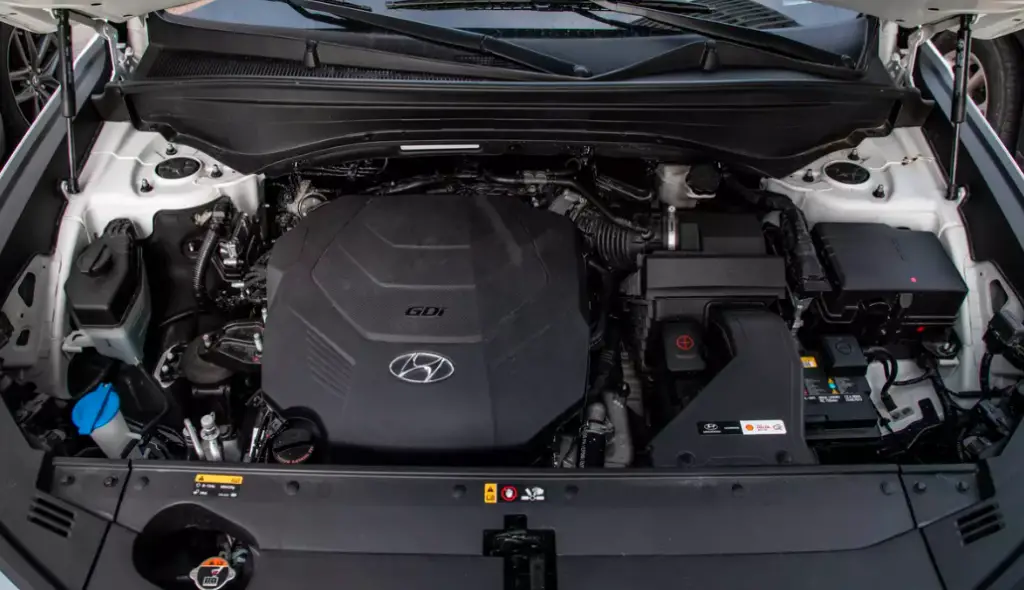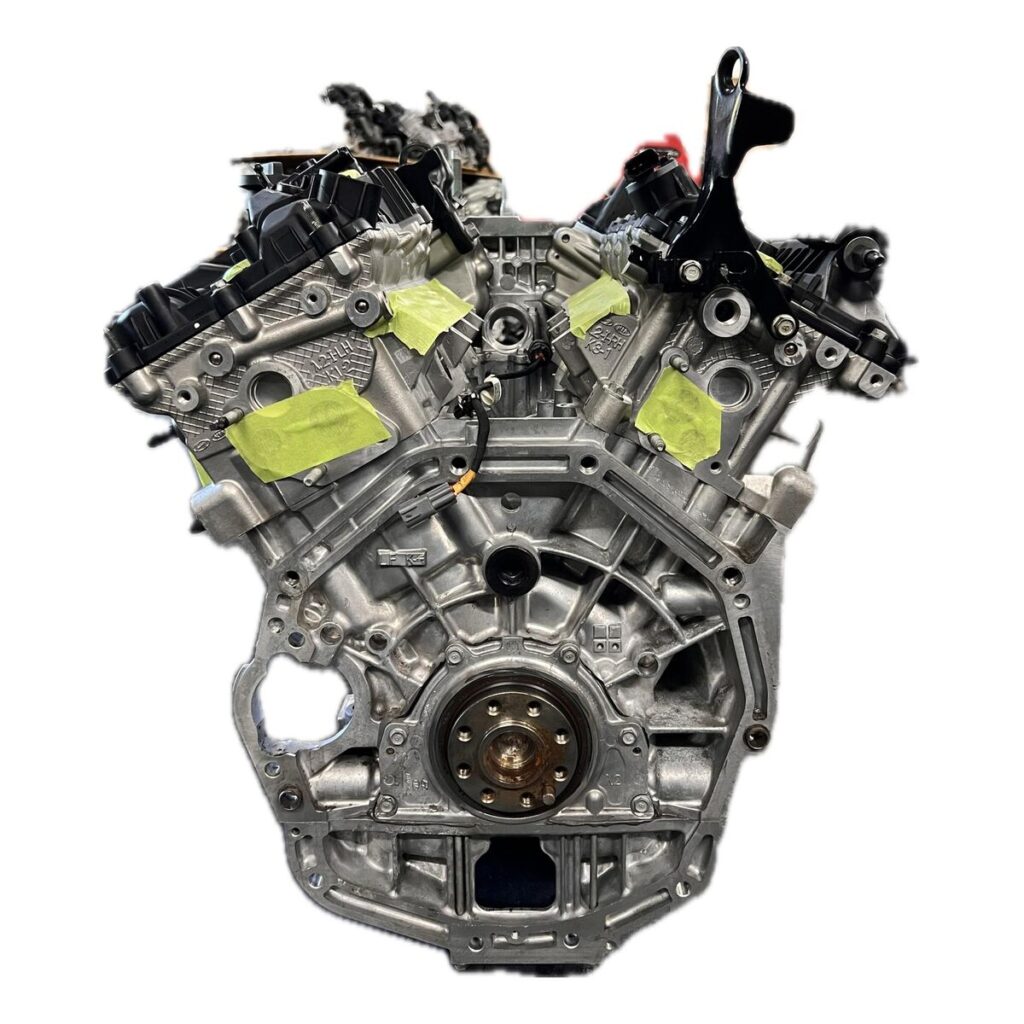The Hyundai Palisade has reported engine issues like stalling, oil consumption, and knocking. Hyundai addressed some problems with recalls and warranty extensions. Regular maintenance and updates can help prevent these issues.
The Hyundai Palisade, introduced in 2018 for the 2020 model year, has quickly become one of the most popular midsize SUVs due to its spacious interior, advanced technology, and overall value. However, like many vehicles, it is not without its issues. Among the most notable concerns raised by owners are engine-related problems.
This article we will discuss common engine problems associated with the Hyundai Palisade, their causes, potential solutions, and how Hyundai has responded to these concerns.

Contents
Common Engine Problems in the Hyundai Palisade
Common engine problems in the Hyundai Palisade include:
1. Engine Stalling
One of the most reported issues with the Hyundai Palisade is unexpected engine stalling. Owners have reported instances where the vehicle stalls suddenly while driving, which can be both dangerous and inconvenient. This issue is often linked to fuel delivery problems, software glitches, or faulty sensors.
2. Excessive Oil Consumption
Several Palisade owners have reported excessive oil consumption, which can lead to low oil levels and potential engine damage if not monitored and addressed. This issue may stem from poor piston ring design or valve seal issues, leading to oil leakage or burning.
3. Engine Knocking and Noise
Engine knocking or unusual noises during acceleration have been noted by some Palisade drivers. These sounds can result from carbon buildup on the valves, incorrect engine timing, or issues with the fuel injection system.
4. Rough Idling and Hesitation
Some users have experienced rough idling and hesitation during acceleration. This issue is often associated with faulty ignition coils, dirty fuel injectors, or air intake problems.
5. Check Engine Light Activation
A frequently illuminated check engine light without a clear cause is another complaint among Hyundai Palisade owners. This problem can be caused by various factors, including malfunctioning oxygen sensors, faulty catalytic converters, or software issues within the engine control unit (ECU).
Causes Behind These Engine Issues
Understanding the root causes of these engine problems is essential for effective solutions. Below are some contributing factors:
- Fuel System Defects: Clogged or malfunctioning fuel injectors can lead to poor fuel delivery, causing stalling and hesitation.
- Software Malfunctions: Outdated or faulty ECU software can trigger incorrect signals to engine components, leading to poor performance.
- Component Wear and Tear: Over time, parts like piston rings, valve seals, and ignition coils may degrade, causing oil leaks and misfires.
- Manufacturing Defects: In some cases, production flaws in engine components can lead to long-term reliability issues.
Hyundai’s Response and Solutions
Hyundai has acknowledged some of these engine issues and has taken various steps to address them:
- Technical Service Bulletins (TSBs): Hyundai has issued TSBs to dealerships to address known issues with software updates and recommended repairs.
- Recalls: In certain instances, Hyundai has recalled affected models to rectify engine-related problems.
- Warranty Extensions: For some issues, Hyundai has extended warranties on engine components to cover repairs.
Owners experiencing engine problems are advised to check for open recalls and visit authorized service centers for diagnostics and repairs.

Related Article
Will Hyundai Replace My Engine?
Has Hyundai Fixed Its Engine Problems?
Preventive Measures for Owners
To minimize the risk of engine problems, Hyundai Palisade owners can take the following preventive steps:
- Regular Maintenance: Adhering to the recommended maintenance schedule for oil changes, air filter replacements, and spark plug inspections.
- Software Updates: Ensuring the vehicle’s software is updated to the latest version to avoid glitches.
- Monitoring Engine Performance: Paying attention to unusual sounds, vibrations, or dashboard warning lights.
- Using Quality Fuel: Using high-quality fuel and engine oil to enhance engine longevity.
Frequently Asked Questions
Here are some FAQs about hyundai palisade engine problems –
1. Has Hyundai issued any recalls for Palisade engine problems?
Yes, Hyundai has issued recalls for specific engine-related issues in certain Palisade models. Owners should check with Hyundai or the NHTSA for the latest recall information.
2. What should I do if my Palisade’s check engine light comes on?
If the check engine light is illuminated, schedule a diagnostic check with a certified Hyundai dealer to identify and resolve the issue.
3. Is excessive oil consumption in the Palisade covered under warranty?
In many cases, excessive oil consumption is covered under Hyundai’s powertrain warranty, especially if the issue results from manufacturing defects.
4. How often should I update my Palisade’s software?
It’s recommended to check for software updates during regular service visits or at least once a year to ensure optimal performance.
5. Can engine stalling be fixed permanently?
Yes, depending on the cause, engine stalling can often be permanently resolved through software updates, sensor replacements, or fuel system repairs.
Conclusion
The Hyundai Palisade remains a strong contender in the midsize SUV market, offering comfort and value. However, potential engine problems such as stalling, excessive oil consumption, and engine noise highlight the importance of regular maintenance and prompt attention to warning signs. Hyundai has taken steps to address these issues through recalls, TSBs, and warranty coverage. By staying informed and proactive, Palisade owners can mitigate these issues and enjoy a more reliable driving experience.